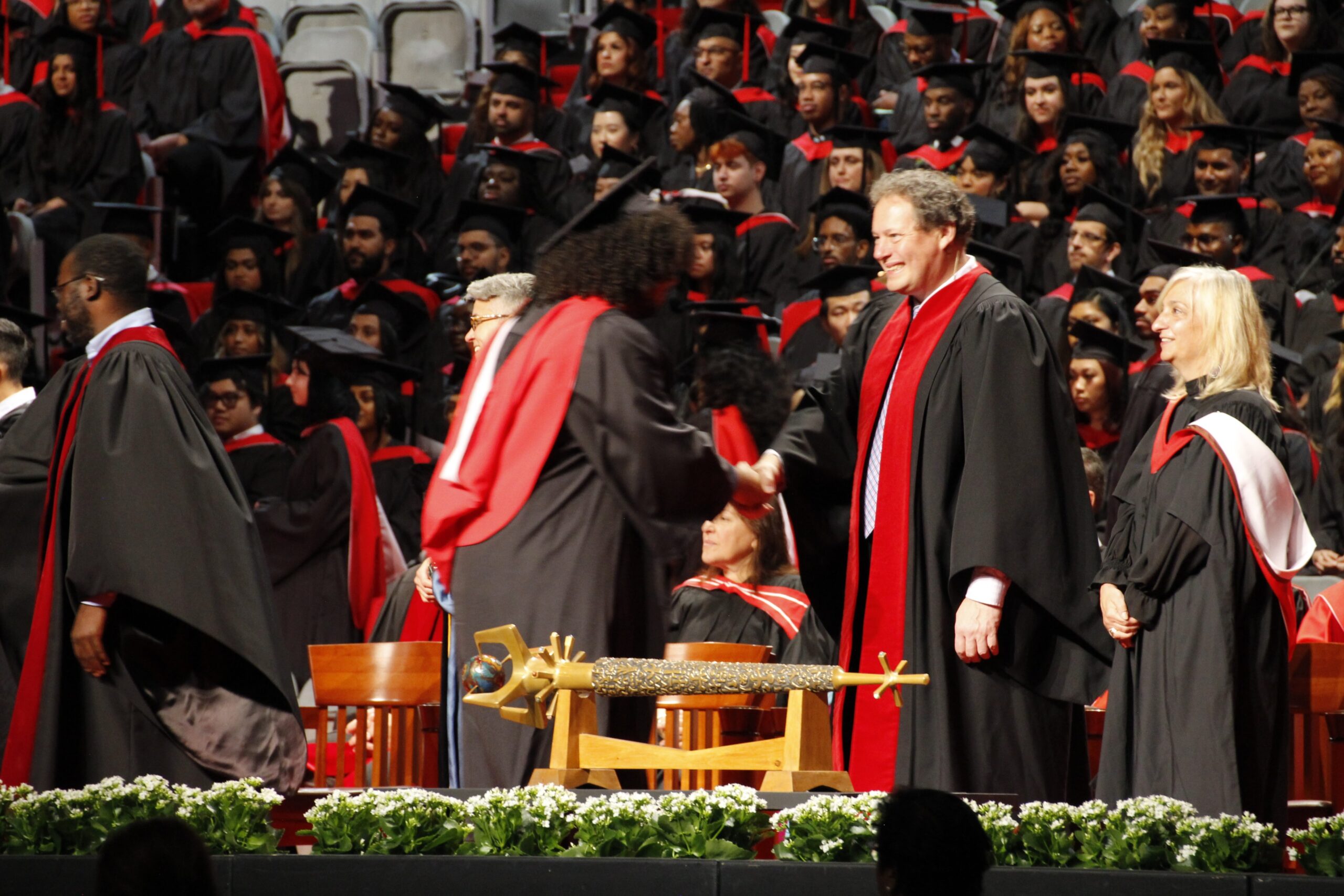When Vernetta found out four years ago that she got into a bridging program to help people with precarious immigration status study at York University, it was “truly one of the happiest days” of her life. “It was very helpful,” she recalls. “It came at a point in my life where I was just facing a black hole.”
Four years ago, Vernetta’s application for permanent residence under humanitarian and compassionate grounds was being processed, leaving her without legal immigration status. In Canada, there are an estimated 200,000-500,000 people like Vernetta, with precarious or undocumented status, including youth, according to the Migrant Rights Network.
Under Canada’s Immigration and Refugees Protection Act (IRPA), foreign nationals — as she was considered — cannot attend postsecondary institutions without a study permit. They are also required to pay international student fees.
Immigration data shows that between 2016 and 2019, the rate of humanitarian and compassionate grounds applications refused after processing ranged from 35 to 41 per cent, as Global News reported. That figure shot up to about 70 per cent in 2021.
“So, I was in a state of limbo,” recalls Vernetta, who asked not to use her last name to avoid being stigmatized. “I’ve always wanted to pursue postsecondary education, but I was not able to because of my status.”
That changed when she found out about York University’s Sanctuary Scholars’ Bridging Program, which helps people with precarious immigration status study at the undergraduate level with no questions asked and at domestic rates.
Despite being able to enroll in elementary and secondary schools, students with uncertain, or precarious immigration status, can find it impossible to access higher education in Ontario, even though they may have received their entire education in Ontario or arrived in Canada with high school or university-level credentials.
“For this program, the term ‘precarious immigration status’ is used to include students who are in the process of applying for permanent status in Canada through refugee claims, refugee appeals or judicial reviews, humanitarian and compassionate grounds applications, pre-removal risk assessments, or those who currently have no immigration status,” according to the website.
‘Permanent temporariness’
Last fall, Toronto Metropolitan University became only the second Canadian university to implement a similar Sanctuary Scholars program.
According to a 2023 York U paper on the issue, without programs like the ones at York and TMU, after students with precarious status turn 18, they are often “blocked from accessing postsecondary education either because they do not have study permits or because they cannot afford prohibitively expensive international tuition fees.”
This is made worse by the fact that “in recent years the Canadian government has ‘increasingly relied on temporary status to manage migration’, which, in turn, ‘facilitates multitude forms of temporariness’,” the paper states.
“You’re stuck in that point in time because you can’t go forward, and you definitely can’t go back,” says Vernetta, who had been waiting “many years” for her PR application to be processed. “It’s a kind of permanent temporariness.”
Tanya Aberman, who coordinates both programs, says “that’s why it became so important to create this pathway: as people are trying to navigate the immigration system, they are still able to pursue their education and pursue their dreams.”
To Vernetta, it made “a world of a difference.”
“The sanctuary scholars program allows you to move forward, even though it’s just within the space of education, but at least you have that sense of control over your life,” she says. “It’s something in your life that you can control, that you’re making progress in.”
Confidentiality is key
Aberman says students are officially categorized with the province as “Non-Canadian, status unknown (refugees and other foreign students in Canada whose status is unknown).”
In its answers to NCM, IRCC said students considered to be foreign nationals and studying without a study permit “may be determined inadmissible to Canada on the basis of non-compliance with the Act and/or Regulations.”
“As well, the CBSA may conduct criminal investigations when it is determined that organizations/individuals have deliberately circumvented the Immigration and Refugee Protection Act.”
However, Aberman assures the program is based on absolute confidentiality and students only report their status to her. In fact, she says, professors and other staff aren’t even aware of which students are in the program.
This is absolutely key, says Vernetta, because “when you have precarious status, that fear of exposure, of being found out, is very real … Just one unfortunate encounter and you’re going to be exposed.”
Institutions dragging their feet
That’s why Aberman says “it would be wonderful” and “a positive thing” to expand the programs nationwide.
Yet, outside of those two institutions — which have limited spaces (TMU’s fall cohort, for instance, only admitted 20 students) — people with precarious status continue falling through the cracks.
According to a The Varsity news report from last October, the administration for Toronto’s other major institution — University of Toronto — is “dragging its feet,” avoiding direct questions as to when a similar program might be implemented there.
“We are engaging in conversations and consultations to understand the particular educational barriers that people with precarious immigration status face and possible models to address them. Discussions on this issue are ongoing and no decisions have been made,” a U of T spokesperson is quoted as saying.
Worth it
The York U academic paper notes that institutions may be fearful that by admitting students without a study permit — which is a violation under IRPA — they may be culpable too.
But “charges and prosecutions using these provisions are highly unlikely,” the authors argue. “Moreover, if such charges were pursued, there is a good argument to be made that the Courts would find the relevant provisions unconstitutional.”
Even if an institution is penalized for breaking the law, they argue, “this is one of the limited sets of circumstances where pushing back against the law — and even breaking the law if necessary — would be warranted.”
Ontario’s Ministry of Colleges and Universities did not reply to NCM’s multiple requests for comments as to their position on such programs and what legal or other barriers institutions might face in implementing them.
Immigration, Refugees and Citizenship Canada (IRCC) replied through email, saying provinces and territories are “responsible for education.” It added that “most people attending elementary or secondary schools in Canada are minors and have the right to study while in Canada. Not all of them require a study permit.”
Fernando Arce is a Toronto-based independent journalist originally from Ecuador. He is a co-founder and editor of The Grind, a free local news and arts print publication, as well as an NCM-CAJ member and mentor. He writes in English and Spanish, and has reported from various locations across Canada, Ecuador and Venezuela. While his work in journalism is dedicated to democratizing information and making it accessible across the board, he spends most of his free time hiking with his three huskies: Aquiles, Picasso and Iris. He has a BA in Political Science from York University and an MA in Journalism from Western University.





